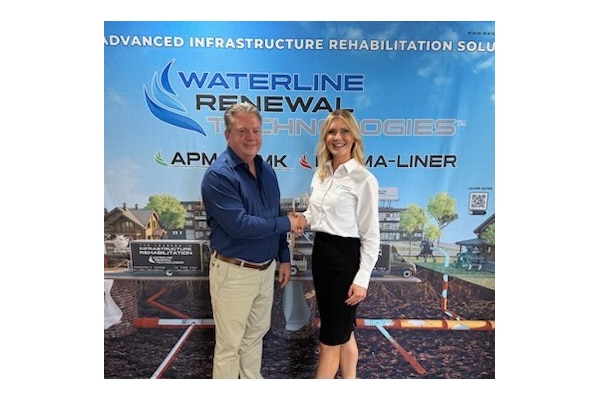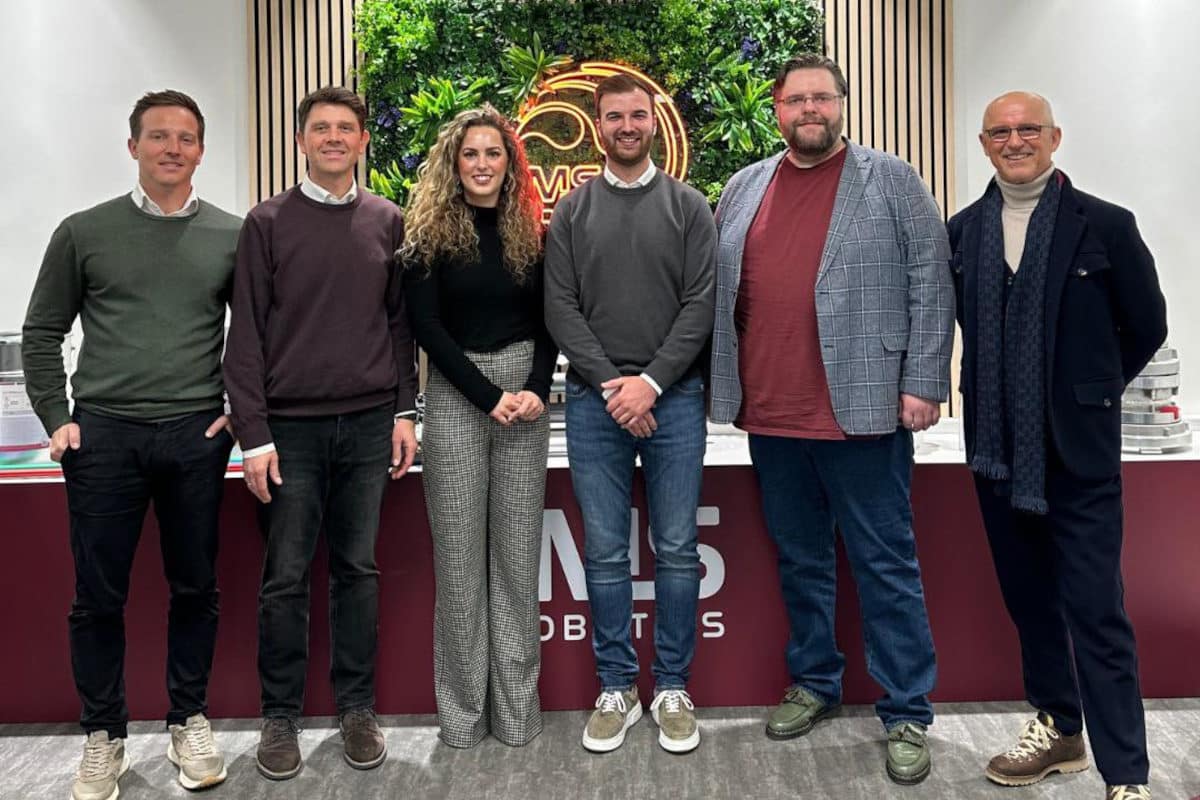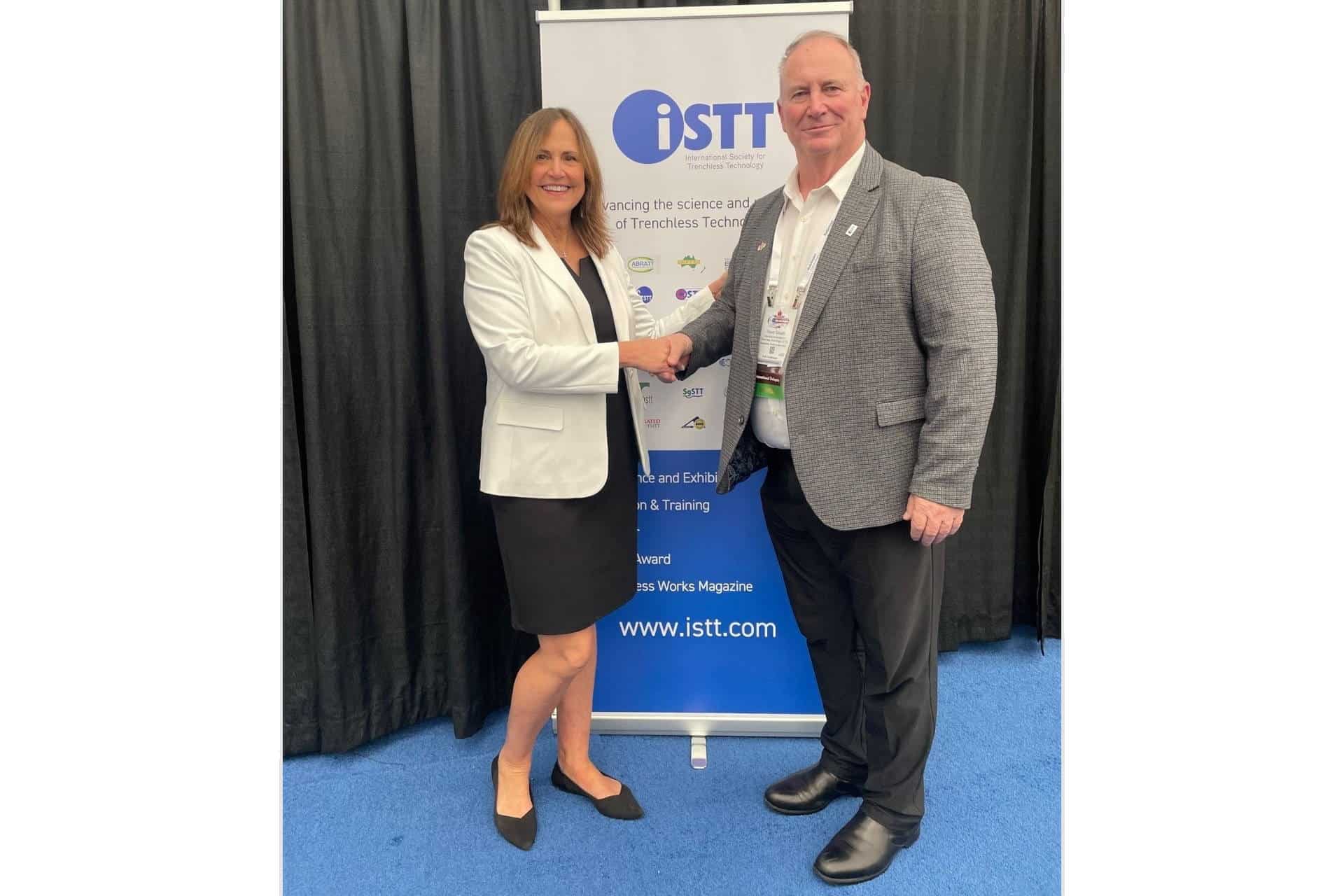BAMI-I Expands to South Africa
 When the Buried Asset Management Institute (BAMI) leadership made acommitment to an international focus in the spring 2004, opportunities in SouthAfrica never crossed their minds. This article presents a message thatemphasizes why it is so important to be active in industry professional andtrade associations and to make sure industry-related products and services areexhibited at various functions.
When the Buried Asset Management Institute (BAMI) leadership made acommitment to an international focus in the spring 2004, opportunities in SouthAfrica never crossed their minds. This article presents a message thatemphasizes why it is so important to be active in industry professional andtrade associations and to make sure industry-related products and services areexhibited at various functions.
This story begins in 2002 when a mayorof a city in South Africa attended an annual convention of the NationalConference of Black Mayors in Jackson, Miss., visiting the InsituformTechnologies Inc. exhibit booth and learning about trenchlesstechnology.
Actually, there is more to the history of this story. Thisinitiative is a continuation of a relationship that dates back a year earlierwhen Michelle Kourouma, executive director of the National Conference of BlackMayors Inc. (NCBM), visited South Africa. This trip was followed by LentsweMokgatle, Mayor of Mogale City, South Africa, attending NCBM’s annual conventionin 2002. Since these meetings, Mayor Mokgatle continued to express an interestin learning more about advanced methods of installing new and/or renewingexisting underground piping systems with trenchless techniques that wouldminimize disruption and destruction to society and the environment. AfterKourouma retired from NCBM, Mayor Mokgatle approached her about assisting him toget more trenchless technology into South Africa.
To understand thesignificance of this story, you must understand the background and characters.Often, we struggle with trying to get the message of the importance of ourindustry to top political decision-makers of major cities. In this case, thereverse happened: a mayor of a fairly large city (population approximately500,000) was excited about the potential benefits of trenchless technology andwas doing all he could to make it available in his city.
BAMI
BAMI was established in February2003, by Commissioner Jack Ravan, within the City of Atlanta’s Department ofWatershed Management (DWM) to serve as a resource to assist Mayor ShirleyFranklin in accomplishing her vision of moving Atlanta’s water program pastconsent decree requirements to “first-in-class” status. As a result of a highlevel of interest from other domestic and international municipalities of allsizes (including product and service providers and academic and researchinstitutions) BAMI-International (BAMI-I) was formed in 2004 as a non-profitorganization, independent of any city but interested in assisting all cities.
The mission of BAMI-I is to provide a center of excellence for owners ofunderground water infrastructure to join with industry and researchers, usingsound science, to evaluate and/or develop buried asset management protocols forapplication worldwide to benefit ratepayers and other stakeholders. This is doneby protecting public health, improving the environment, maximizing assetlifecycle value, sustaining economic development and enhancing the quality oflife. Both the BAMI and BAMI-I programs have been led by Tom Iseley, independentconsultant; Dr. Troy Norris, City of Atlanta; and John Griffin, City of Atlanta.Rob Hunter recently replaced Jack Ravan as DWM commissioner and the strongcommitment with BAMI-I continues. On April 19, Time magazine released anannouncement honoring Franklin as one of five of the top mayors of major citiesin the United States, detailing her background and commitment to the City ofAtlanta.
One of the outstanding characteristics of Franklin’sadministration is her commitment to win more friends for the City of Atlanta.She is committed to reaching out and learning from others, as well as reachingout and sharing lessons learned with others. This commitment resulted in theestablishment of a resolution between BAMI and the NCBM. When Franklin signedthis resolution, none of us could imagine that this relationship would lead toSouth Africa.
CHJP and Associates (CHJP) has been a 100 percent owned andoperated African-American community development consulting firm since 1988. As acommunity development-consulting firm, CHJP understands all aspects of improvingthe quality of life for people in large and small municipalities throughout theworld. CHJP offers expertise in economic development, all aspects of housing andmunicipal planning, and all aspects of developing and managing infrastructure.CHJP works closely with NCBM and has been supportive and involved in all BAMI-Iactivities.
The trip to South Africa was coordinated by CJHP and BAMI-I.It was made possible by industrial support from the Southeast Society forTrenchless Technology (SESTT), Engineering Consultants Inc.; CHJP; WarrenEnvironmental Inc., Solution Resources Inc. and Hydromax USA Inc.
TheBAMI-I and CHJP delegation consisted of: Iseley; Kourouma, independentconsultant; Marcellus Pitts, partner with CHJP; and Michael Fleming, presidentof Daywheel Inc. The delegation was hosted by Peter Davidson, chairman of SukumaConveying Solutions (Pty) Ltd. Davidson’s firm already has joint ventureagreements with U.S. firms to provide support to the South African miningindustry. He accompanied Mayor Mokgatle on the trip to the 2002 NCBM convention,where he also became interested in the trenchless technology industry and itspotential in South Africa.
Purpose of Trip
The objective of thistrip was to serve as a fact-finding operation to learn more about: (1)water/sewer infrastructure needs in Mogale City and other communities in SouthAfrica; (2) current strategies within water and sewer agencies in South Africafor infrastructure improvements; (3) political awareness, concern and commitmentto the importance of water infrastructure; (4) general awareness, commitment andprograms that currently exist within water utilities, involving the applicationof advanced asset management principles and practices; (5) building businessrelationships; (6) establishing a business structure for facilitating thetransfer of trenchless technologies into South Africa and visa versa andfinally; and (7) establishing a structure for continuing the relationshipbetween BAMI-I and NCBM.
When the delegation departed for South Africa,it really did not know what to expect. However, what was accomplished andlearned exceeded all of the trip participants’ expectations. Much of the successof the trip must be credited to the high level of commitment, interest andenthusiasm the delegation met with by its South African hosts.
Davidsonarranged the itinerary for the delegation, concentrating on meetings withindividuals responsible for water and sewer development and maintenance. Uponarriving in South Africa, the group observed signs and newspaper articlesfocusing on unaccounted for water loss, costing approximately 200 million Rand($33.2 million USD) annually. So in many ways, the delegation couldn’t havevisited South Africa at a better time because municipal officials, inparticular, were interested in solving this problem. As a consequence, thedelegation’s presentations on the advantages of utilizing trenchless technologyto repair breaks and install new lines struck a positive chord with theengineers and technicians involved in public works projects.
Duringmeetings with public works departments at Johannesburg Water and ERWAT (aregional wastewater treatment facility), the delegation discovered thattrenchless technology was being used in its most rudimentary form. In MogaleCity, the technology isn’t being used at all but there is a need to usestate-of-the-art trenchless technology to address some of the extensiveinfrastructure problems the city is facing. Mayor Mokgatle emphasized this pointand arranged an unexpected meeting with Mayor Smangaliso Mkhatshwa of Tshwane(formerly Pretoria) to discuss it further.
What Was Learned
In summary, there is aninterest in establishing BAMI-I South Africa and almost without exception, thedelegation was invited back to establish trenchless technology projects toalleviate some of the infrastructure challenges cities are facing.
Duediligence took us to the home of Johnny Brown, minister counselor for commercialaffairs at the U.S. Embassy in South Africa. The business related specificallyto how his office can assist with getting U.S. products, technologies andservices into South Africa. Several options were discussed. One example was thatBrown has already made plans to bring six electric power industry leaders to theUnited States to learn more about power generation. There was also discussion ofexpanding the scope of this trip to include power distribution by visitinghorizontal directional drilling (HDD) equipment manufacturers, projects andconsultants, as well as the possibility of working through the U.S. Embassy toorganize a delegation of water and sewer utility leaders to come to the UnitedStates.
This delegation would be exposed to the challenges faced bywater and sewer utilities faced with meeting federal court consent decrees suchas the City of Atlanta and would attend a trenchless technology conference inNiagara Falls, Canada in June, visit the Center for the Advancement ofTrenchless Technology (CATT), as well as visit with several utility leaderscommitted to advancing the principles and practices of advanced asset managementsuch as Seattle Public Utilities, Orange County Sanitation District inCalifornia, etc.
While in South Africa, the U.S. delegation developed abusiness relationships and established a business structure for facilitating thetransfer of trenchless technologies into South Africa and visa versa. Anothercomponent of the trip included a meeting with Joan Edwards, investmentdevelopment director for the Overseas Private Investment Corp. (OPIC). OPIC iscommitted to helping U.S. small businesses grow through investing overseas.
Conclusions
This South African storyrepresents a major milestone chapter in my personal life and professionalcareer. I have had the privilege to travel and work in several countries; butthis trip was special because of the wonderful people, the unique history andthe commitment of the political leaders to move South Africa into the mainstream of the world economy. It has only been 10 years since apartheid ended. Ibelieve that each year the leadership and economy will grow stronger until SouthAfrica represents a global economic leader. This means now is the time for manyglobal firms to look closely at this market for providing products and services.As with any market entry strategic planning process — especially foreign markets— due diligence is essential.
This story has been launched with asuccessful and exciting beginning. The BAMI-I South African team is committed toensuring that this fact-finding trip is not the end of the story. There issimply too much opportunity for commercial firms to not investigate this market.This growing economy is American-friendly and desires U.S. technology. Firmsfrom countries all over the world are establishing businesses in South Africawith some making this their world headquarters.




